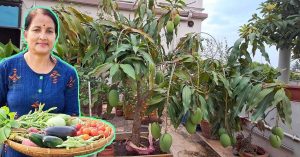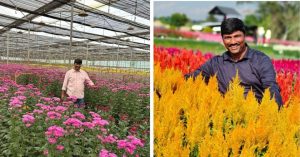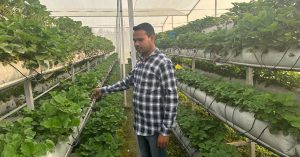Mocked For Growing Strawberries, Tribal Farmer Goes From Earning Rs 4000 to Rs 2 Lakh
A tribal farmer in Maharashtra, Ramesh Bhiva Bangar is reaping phenomenal profits by cultivating strawberries – a fruit that he had never even tasted earlier.
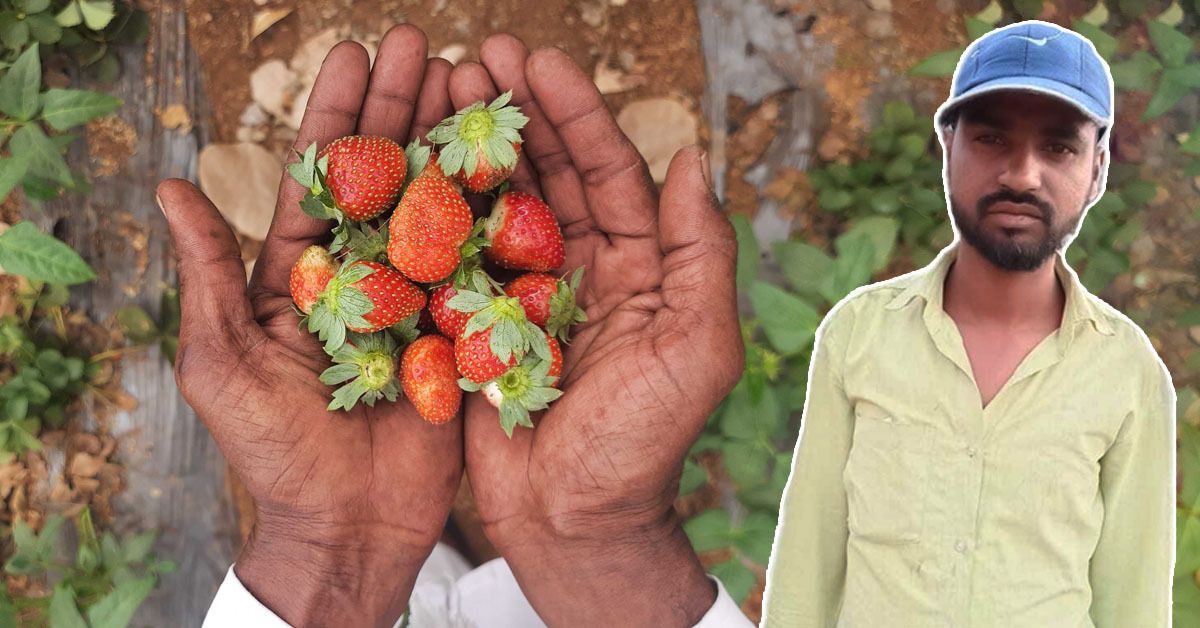
Located nearly 90 km from Pune, the tribal hamlet of Kopre in Junnar is struggling with the depletion of its natural water reserves. The residents now rely on water tankers to fulfil their daily water requirements. Consequently, cultivating traditional crops, such as paddy and wheat, has become a formidable challenge for farmers in this water-scarce region.
Interestingly, a shift to a new crop has brought positive outcomes for one of the forward-thinking farmers in the village. Last September, Ramesh Bhiva Bangar turned to cultivating strawberries — a fruit that he had never tasted until he cultivated some on his farm!
Within a couple of months, he went from earning Rs 4,000 to Rs 2 lakh per season. His success has become exemplary for hundreds of farmers and agricultural officers who flock to his farm every day.
In conversation with The Better India, the tribal farmer reveals how he harvested phenomenal profits.
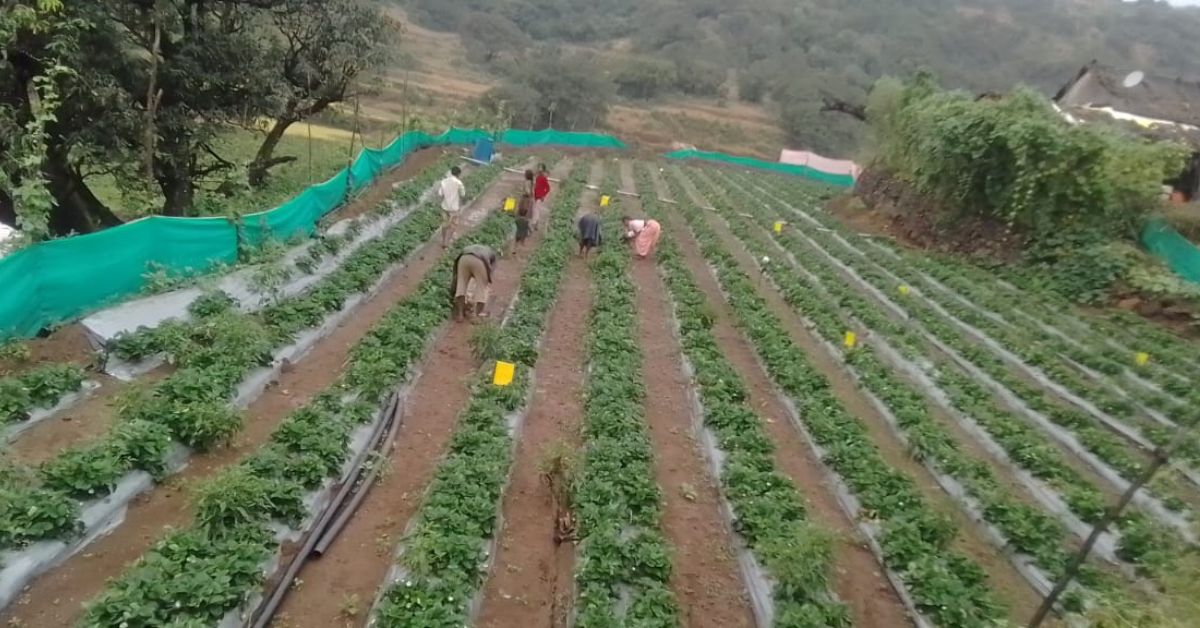
My father feared I might end my life
Born and brought up in the tribal-dominated Kopra village of Maharashtra, Ramesh could only study till Class 10. After completing his schooling in 2006, he joined a local school as a peon. After working in the school for two years, he took up odd jobs like driving a pickup vehicle before turning to his family work of farming.
The family owns 22 acres of land but utilises only two to three acres for cultivation owing to a lack of irrigation resources. So after cultivating paddy in Kharif season, Ramesh would be forced to move out to nearby villages for daily jobs that would earn him Rs 350 a day.
“I wanted to boost our household income without leaving my village. Also, I did not want to slog like my father and grandfather, knowing that my hard work would not yield good profits,” he shares.
But Ramesh did not know a way around it until he met his maternal uncle last year. “He suggested I opt for a new kind of crop like strawberry given that my hilly village has Mahabaleshwar-like weather, which is suitable for growing strawberries,” adds the 35-year-old farmer.
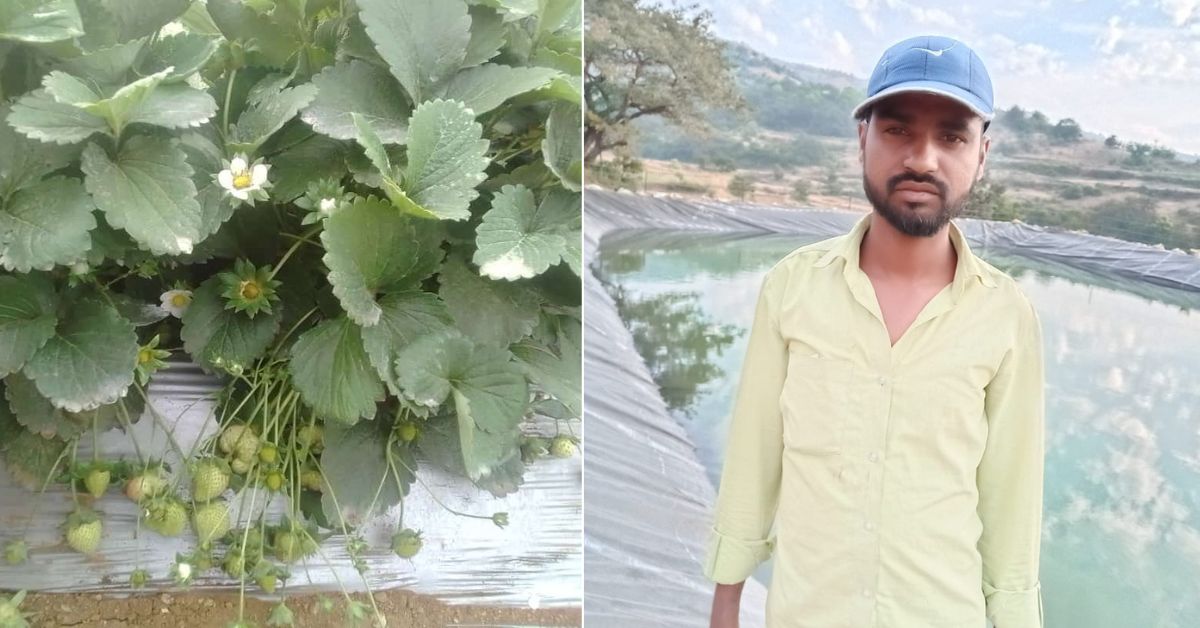
In a bid to prepare the field for a new crop, he borrowed Rs 50,000 from his uncle and bought 4,800 saplings that cost him Rs 10 each. He returned to the village and started ploughing the field.
“My father was very doubtful of my decision. He was worried that I would fail to cultivate this new crop. And if I failed, then how would I repay the loan amount? He feared that I might turn to taking my life like other farmers in the drought-prone regions,” he says.
But without losing any hope, Ramesh prepared the beds, planted all 4,800 saplings in 10 guntha land [40 gunthas make 1 acre], and applied straw mulch over small strawberry plants to retain the soil moisture.
Every tenth day as he irrigated his crop, local people mocked him. “I did not take any training from anyone. So, whenever I would tell people that I was cultivating strawberries, they would mock me and label me mad and crazy,” he says.
Meanwhile, instead of relying on any chemical fertilisers, he used cow dung, buttermilk, and curd that, he says, act as good fertilisers and fungicides.
More than a month went by, but there was no fruit. “Everyone doubted me, but I hoped to see at least one fruit in my field,” he says.
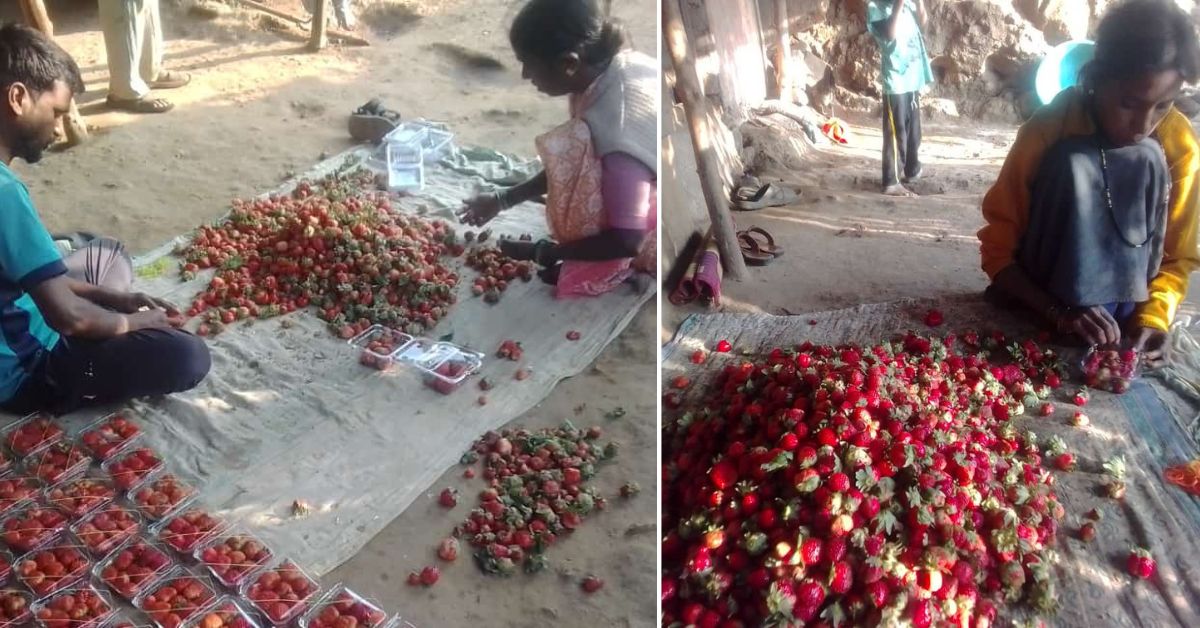
Tasting strawberries and success for the first time
Ramesh finally laid eyes on the first strawberry on his farm after 45 days (November-end).
“My joy knew no bounds. I offered the first fruit to my son. He was so happy that he ran to his friends, proudly flaunting the strawberry while telling them how his papa had grown a new kind of fruit. No matter how much I earn, that happiness was priceless for me. Cultivating strawberries became a proud moment of my life,” he shares with pride.
“And this was also the first time in my life that I tasted strawberries. Earlier, I could not afford to buy this exotic fruit on my own,” he adds.

Every day, Ramesh harvests at least 20 kg of the fruit and sells it to the local market. Priced between Rs 30 and Rs 50, he manages to earn Rs 3,000 a day. Today, he has also found buyers from nearby villages in Junnar and the Pune district.
“The first day, when I took my produce to the market, people looked at me strangely and threw several questions at me. As I come from a small tribal village and I was new in the market, nobody knew me,” he says.
“But seeing me succeed in the past couple of months, they now come to me and inquire about my technique and how I achieved success. Now, when I visit the market, they vacate space for me and call me seth ji [a wealthy merchant]. But this does not fascinate me,” he shares.
“Strawberries have helped me establish an identity for myself and an opportunity to make my family proud. This is all that matters,” adds Ramesh, who now aims to expand strawberry cultivation to four times the present farmland.
Edited by Pranita Bhat; All photos: Ramesh Bhiva Bangar.
If you found our stories insightful, informative, or even just enjoyable, we invite you to consider making a voluntary payment to support the work we do at The Better India. Your contribution helps us continue producing quality content that educates, inspires, and drives positive change. Choose one of the payment options below for your contribution- By paying for the stories you value, you directly contribute to sustaining our efforts focused on making a difference in the world. Together, let’s ensure that impactful stories continue to be told and shared, enriching lives and communities alike. Thank you for your support. Here are some frequently asked questions you might find helpful to know why you are contributing?

This story made me
-
97
-
121
-
89
-
167




